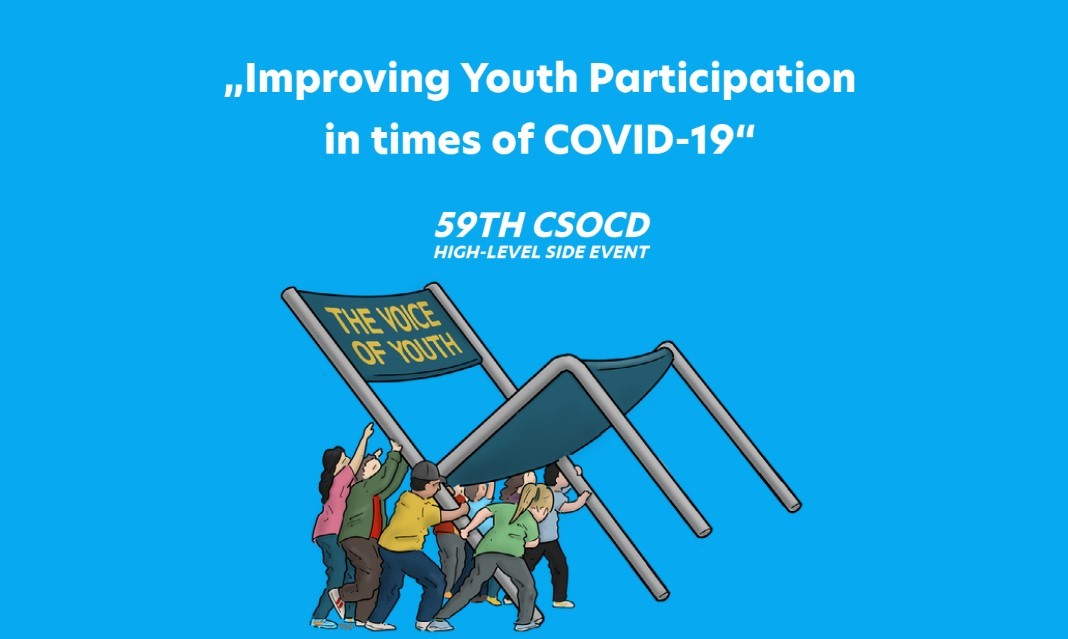
Intending to inspire action to improve inclusion of young people in decision making on all levels during the pandemic, UN Youth Delegates from Germany, Finland, Netherlands, Peru and Switzerland organized a side event titled “Improving Youth Participation in Times of COVID-19” jointly with the EU Delegation in New York and the Permanent Missions of Germany and Switzerland. Opening remarks from Youth Delegates, German Ambassador Günter Sautter and EU Ambassador Silvio Gonzato were followed by an inspiring discussion among five panelists representing diverse perspectives of local youth councils, youth activists, youth-led organizations, governments, and intergovernmental institutions, taking into consideration a broad geographical diversity. The panel was composed of Satta F. Sheriff (SDG Young Leader, UN Youth Envoy), Petrider Paul (African Union Commission Youth Advisory Council), Sabrina Segovia Lira (Lima Centro Metropolitan Council for Youth Participation, Peru), Lusanda Magwape (Founder of Dream Factory Foundation, South Africa) and Bettina Bundszus (Head of Department for Children and Youth, German Federal Ministry for Family Affairs, Senior Citizens, Women and Youth). The panel discussion was centered around three main topics: impact of the pandemic on young people, positive contributions of young people during the pandemic, steps towards better youth participation. The event was moderated by two UN Youth Delegates and gained more than 1.600 views on social media.
The young and all-female panel agreed on the disproportionately severe impact of the pandemic on young people, particularly on their mental health and general well-being (SDG 4). A survey conducted by UN Youth Delegates with 420 participants worldwide indicated that 85% of young people’s mental health is significantly affected, followed by effects on international socialization (63,8%) as well as education and employment opportunities (both 55%). A call for action to improve youth participation was issued given the finding from the survey that not even one in five youth were satisfied with their way of inclusion and more than 50% of participants rating participation as bad or very bad. Young panelists exemplified how youth were strategically disregarded in decisions on sanitary measures. The most prominent suggestions to improve the inclusion of youth perspectives into political decision-making were regular youth conferences and round-table discussions engaging both local and national politicians (60% in favour). Against the background of a comprehensive government youth strategy in Germany, Bettina Bundszus pointed out how beneficial it is when governments create serious and effective opportunities for young people to participate in decision-making processes. In this context, she said, recognition and support of youth structures and their meaningful participation are a key prerequisite.
The event addressed a need to shift the mindset from simply hearing young people whenever convenient but structurally ensuring their voices to be integrated into the public discourse. The overall message at the end of the event was seemingly clear: Engage young people regularly and meaningfully, i.e. in a structured way.
Photos from the event:
For more information, please visit: https://www.facebook.com/EUatUN
 Welcome to the United Nations
Welcome to the United Nations